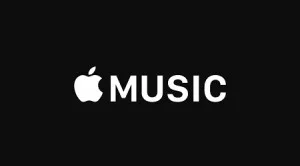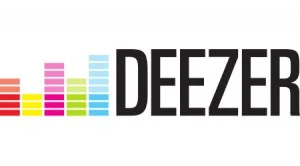Which Music App Use Least Amount Of Data
We're reader-supported and may be paid when you visit links to partner sites. We don't compare all products in the market, but we're working on it!
{"menuItems":[{"label":"Choose your streaming service","anchorName":"#choose-your-streaming-service"},{"label":"Spotify","anchorName":"#spotify"},{"label":"Apple Music","anchorName":"#apple-music"},{"label":"Google Play Music","anchorName":"#google-play-music"},{"label":"YouTube Music","anchorName":"#youtube-music"},{"label":"Tidal","anchorName":"#tidal"},{"label":"Deezer","anchorName":"#deezer"},{"label":"SoundCloud","anchorName":"#soundcloud"},{"label":"iHeartRadio","anchorName":"#iheartradio"},{"label":"Tips on saving data when streaming music","anchorName":"#tips-on-saving-data-when-streaming-music"}]}
Streaming music services like Spotify and Apple Music have made groovin' on the go easier than it's ever been. No longer do you need to clog up your phone with GBs upon GBs of music, always running out of space and never having that one song you really want to listen to available when you need it most. Now, you simply load up your favourite music streaming app and pick from millions of songs stored in the infinite bandwidth of the cloud.
This freedom does come with a catch, however. Because you're streaming in tunes over the Internet, you can chew through quite a bit of data listening to Ed Sheeran's latest album while you're out and about. To make sure you don't accidentally blow through your monthly data cap, we've rounded up the most popular music streaming services and broken down their average data usage. Using this guide, you can rock out wherever you are without risking a nasty bill shock.
Spotify
Spotify offers three tiers of audio quality, with better-sounding audio using more bandwidth and hence more data. These tiers are:
- Normal: 96kbps
- High: 160kbps
- Extreme: 320kbps
In practical terms, this means a typical three-minute song uses up roughly 2.16MB on Normal, 3.6MB on High and 7.2MB on Extreme. If you listen to an average of one hour of music every day, this works out at a monthly data usage of approximately 1.27GB on Normal, 2.1GB on High and 4.2GB on Extreme.
Learn more in our guide to Spotify
Apple Music
Apple Music streams at 256kbps, which clocks in at roughly 5.6MB for a three-minute song. Assuming you listen to an hour of music each day, this would chew through 3.3GB of your monthly data allowance.
If you're a Telstra pre-paid or post-paid mobile customer, however, you can stream as many songs as you like through Apple Music without using up any of your data, thanks to Telstra's data-free Apple Music offer.
Learn more in our guide to Apple Music
Google Play Music
Google doesn't advertise the exact bitrates of Google Play Music's quality settings, but general testing places them in line with Spotify's, resulting in the following tiers:
- Low: approximately 96kbps
- Normal: approximately 256kbps
- High: approximately 320kbps
Like Spotify, then, streaming a three-minute song on Google Play Music consumes roughly 2.16MB of data at Low quality, 3.6MB at Normal quality and 7.2MB at High quality. Grooving to an hour of music a day would burn through an average of 1.27GB on Low, 2.1GB on Normal and 4.2GB on High.
Learn more in our guide to Google Play Music
YouTube Music
Data usage on YouTube Music is tough to nail down, with audio and picture quality often differing from video to video. Nevertheless, the figures below are a good general guide to go by:
- 240p: approximately 150MB an hour
- 480p: approximately 370MB an hour
- 720p: approximately 670MB an hour
- 1080p: approximately 1.1GB an hour
Based on these figures, streaming an hour of music a day would tear through roughly 4.4GB at 240p, 10.8GB at 480p, 19.6GB at 720p and 33GB at 1080p. Yikes.
YouTube Red subscribers also have the option of streaming videos from YouTube Music in audio-only mode, removing the video and thus reducing the amount of data used. Because there's no consistency in audio quality between videos, though, it's not as straightforward as other streaming services. Nevertheless, assuming an average of 256kbps is a safe bet, and this works out as 3.6MB for a three-minute song and 2.1GB for a month of one-hour-a-day streaming.
No Aussie telcos currently offer data-free streaming through YouTube Music.
Learn more in our guide to YouTube Music
Tidal
Tidal touts its support for high-quality lossless audio, but that quality comes at a steep price in data use. Fortunately, the Tidal mobile app allows you to choose your desired audio quality from the following options:
- Normal: 96kbps
- High: 320kbps
- Lossless: 1411kbps
At Normal quality, a three-minute song weighs in at roughly 2.16MB, while it hits 3.6MB at High quality and a hefty 31MB at Lossless quality. Listening to an hour of music a day would eat up approximately 1.27GB at Normal quality, 2.1GB at High quality and a whopping 18.2GB at Lossless quality.
Unsurprisingly, no mobile providers currently offer data-free streaming through Tidal.
Learn more in our guide to Tidal
Deezer
Deezer offers some of the most versatile audio streaming options for tailoring your data usage to your mobile plan allowances. In the audio settings section of the mobile app, not only can you pick between preset options, you can also customise your preferred sound quality to a particular bitrate based on whether you're streaming over Wi-Fi or using your mobile data. Preset options include:
- Basic: 64kbps
- Compact: 128kbps
- Enhanced: 320kbps
At Basic quality, you can reduce data usage on a three-minute song to just 1.4MB, while Compact weighs in at 2.8MB and Enhanced sits at 7.2MB. On a schedule of one hour of music streaming a day, Basic quality will chew through roughly 844MB of your monthly data allowance, with Compact upping that to 1.65GB and Enhanced topping out at 4.2GB.
Unfortunately, no telcos currently offer data-free streaming through Deezer.
Learn more in our guide to Deezer
SoundCloud
SoundCloud streams all its music at just a single audio quality: 128kbps. For audiophiles, this can be quite disappointing, but it does keep data usage reasonably low. A three-minute song at 128kbps clocks in at roughly 2.8MB, with an hour of daily streaming using up approximately 1.65GB.
No telcos currently offer data-free streaming for SoundCloud.
Learn more in our guide to SoundCloud
iHeartRadio
Like SoundCloud, iHeartRadio streams at a flat 128kbps, with the average three-minute song accounting for approximately 2.8MB of data. Streaming for an hour a day will dock your monthly data allowance by roughly 1.65GB
Learn more in our guide to iHeartRadio
The simplest way to reduce your data usage when streaming music on your mobile is by dropping the audio quality, but if that's not an option – or you can't bear listening to your favourite artists at anything less than 320kbps – you'll want to look into downloading your most-listened-to tracks and albums for offline play. The majority of streaming services include an offline-playback feature nowadays, and by stocking up on your favourite tunes when you're connected to your home Wi-Fi network, you can save yourself plenty of data while you're out and about.
Latest music streaming news
- The Apple Music free trial lets you test-drive the platform for 3 months
- Score a deal with Amazon Music Unlimited Australia today
- YouTube is launching its own music streaming service this month
- Will Spotify's float be stopped by a $2 billion lawsuit?
- iTunes is dying and I'm thrilled to dance on its bloated corpse
Which Music App Use Least Amount Of Data
Source: https://www.finder.com.au/music-streaming-data-usage
Posted by: jarvisuppeathe.blogspot.com









0 Response to "Which Music App Use Least Amount Of Data"
Post a Comment